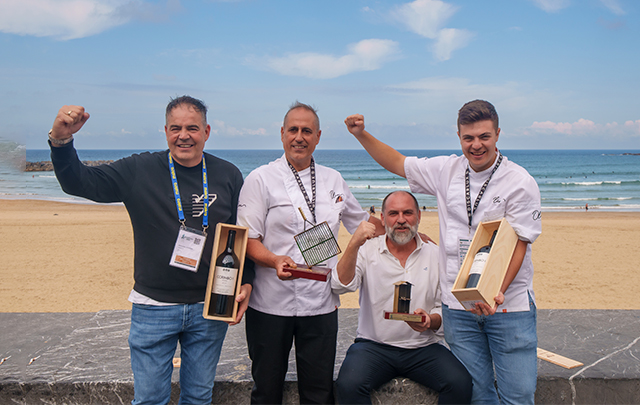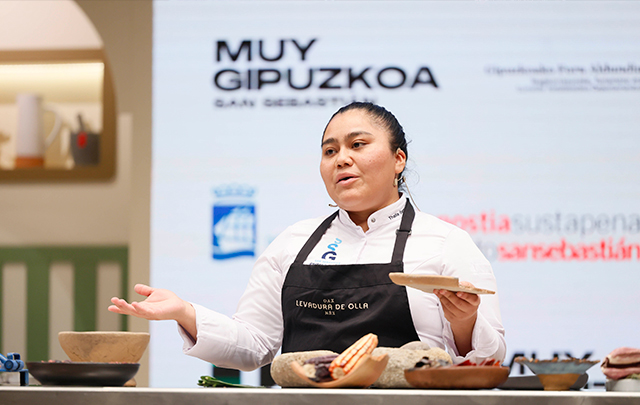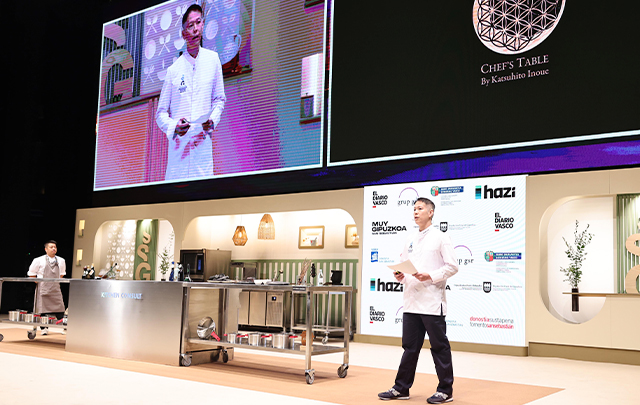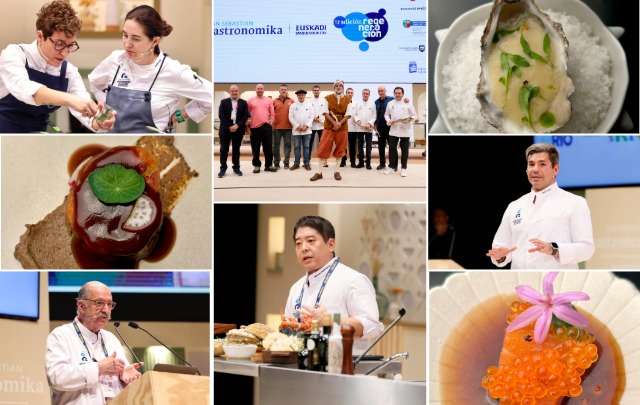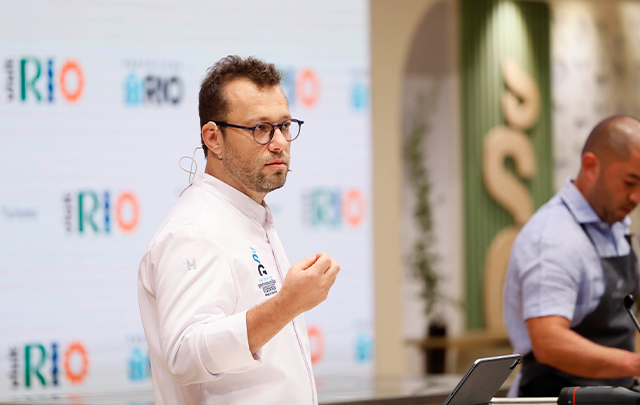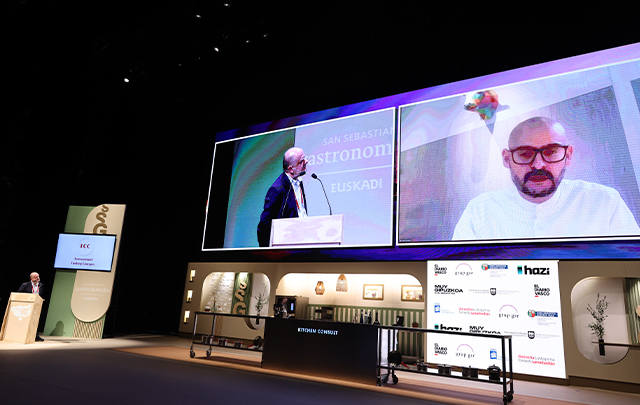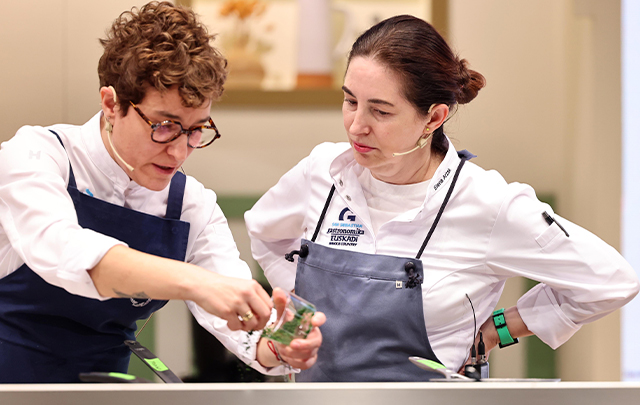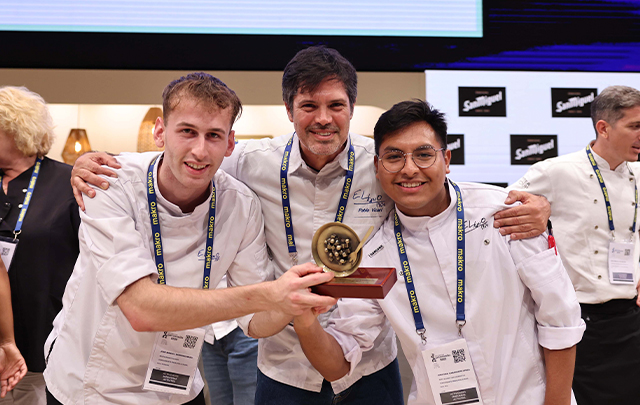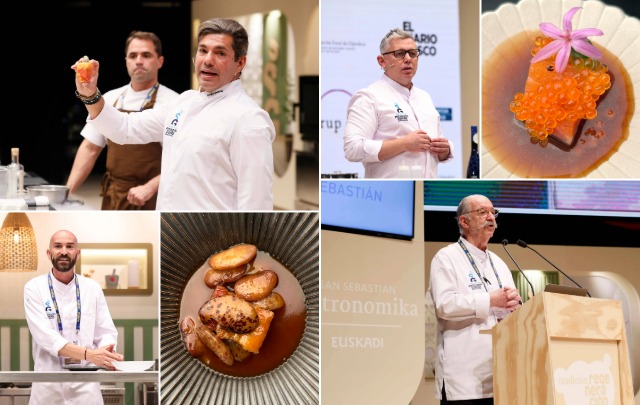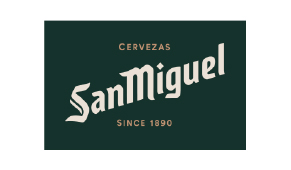News
San Sebastian Gastronomika closed its most reflective edition with a call to cook with truth, emotion and respect.

The 27th edition of San Sebastian Gastronomika – Euskadi Basque Country came to a close at the Kursaal Auditorium, a day marked by deep reflection on origins, fire, respect, and waste-free, conscious cooking.
Highlights included chef Katsuhito Inoue's Japanese charcoal cooking, Jordi Roca's sweet stories and José Gordón's passionate defence of authenticity, respect and sustainability. The conference closed with a powerful call for authenticity to achieve excellence. Ideas that resonated on the final day included fermentation as a creative path, smoke as an ancestral language, and respect for scarcity. Once again, San Sebastián was placed at the beginning of October as the global epicentre of gastronomic thought. This edition also saw the sea feature more prominently than ever before.
Gastronomika built on last year's success, welcoming 14,621 accredited attendees from 48 countries and 1,362 conference participants, one third of whom had the opportunity to sample over 10,000 tastings. The marquee where the 2nd Forum of Taverns and Tavern Keepers was held was once again packed to capacity throughout the two days of this initiative, which began in 2024.
On the third and final day of San Sebastian Gastronomika-Euskadi Basque Country 2025, the Kursaal Auditorium showcased technical mastery alongside emotion and reflection on themes such as fire, sustainability and memory. Japanese chef Katsuhito Inoue paid tribute to Basque tradition by reinterpreting curd, pilpil and charcoal-grilled chops. José Gordón championed authenticity and time as essential ingredients, while Jordi Roca transformed autumn into a sweet, colourful and nostalgic tale. The programme concluded with the Basque Culinary Centre looking to the future through fermentation, Thalía Barrios from Oaxaca championing smoke as an ancestral language, and Luigi Pomata from Italy reminding us that sustainability begins with respect for scarcity.
Chef Katsuhito Inoue, head of Chef's Table by Katsuhito Inoue in Kyoto, Japan, gave a presentation combining Japanese tradition and Basque inspiration, titled 'Basque-inspired Japanese charcoal dishes'. Having trained under Andoni Luis Aduriz, Inoue reflected that his time in the Basque Country had taught him to appreciate his own culinary heritage more, inspiring him to pass on his knowledge. This desire to preserve tradition led him to reinterpret local symbols such as curd, pilpil and chuleta con pimientos (chuleta with peppers) using the 'gentle heat' of charcoal. In a display of delicate culinary poetry, he explained his philosophy, which is based on the 72 seasons of the Japanese calendar, and involves observing how a plant blooms or the colour of a fruit changes. He also defended the use of charcoal, or bincho-tan, as a 'spiritual interpreter of the ingredient', capable of bringing harmony, texture and depth. His creations included milk tofu inspired by curd, grilled ayu fish and miso aubergine inspired by pilpil, as well as a Basque-style wagyu steak topped with roasted peppers ‘to convey the memory of my experience in Spain’.
The morning continued with José Gordón, the founder and driving force behind El Capricho in Jiménez de Jamuz, León, who gave a talk entitled 'Obsession and respect: The Philosophy of a Unique Project”, in which he declared his principles of authenticity, the nobility of the product, and the importance of time. “My restaurant is a circular project, born in childhood when I learned to make the most of resources,” he recalled emotionally. In his deeply rooted speech, Gordón paid tribute to the ox, to the farmers who preserve native breeds and to an approach to cuisine based on authenticity. ‘Authenticity is the key to excellence,’ he said, championing patience as a virtue in an age of immediacy. To him, El Capricho is much more than a restaurant: 'It is a school of grilling, a way of life where passion, sustainability and consistency converge in the heat of the fire.'
Sweet autumn
Jordi Roca provided the sweetest moment of the day with his presentation, 'Sweet Autumn Journey', which took attendees on a sensory journey intertwining memory, colour and emotion. The pastry chef at El Celler de Can Roca**** evoked childhood memories with desserts featuring ball pools, edible plasticine, games and bright colours, and presented four creations inspired by autumnal tones and flavours, transforming oranges, chestnuts and sweet potatoes into ephemeral stories. ‘Desserts are not learned, they are experienced,’ Roca argued, explaining that each creation is born from memory and play. In his approach, technique serves emotion, from a reinvented cup of tea with grated coconut and humorous touches to a chromatic dessert celebrating the autumnal colours. “Colours are not just visual pigments; they are carriers of emotion,” he concluded, imparting a lesson in sensitivity and gastronomic poetry.
The director and some representatives of the teaching staff at the Basque Culinary Center (BCC) followed him in presenting their new commitment to research applied to cooking in a presentation entitled “Goe: fermentation as a path to a delicious future”. On stage, director Joxe Mari Aizega outlined a vision for the future based on science and creativity, alongside professors Cipriano Carrero and Eneko Oizcue, student Laura Ann, and head of innovation John Regefalk. Aizega highlighted the BCC's fourteen-year history and announced the opening of Goe, a space conceived as a laboratory for artistic and gastronomic innovation. “Gastronomika is a valuable platform for promoting a delicious future,” he emphasised.
The conversation revolved around fermentation as a living process that is becoming increasingly prevalent in students' projects and which symbolises a paradigm shift towards a cuisine that listens to natural rhythms. They offered a cheesecake fermented with enzymes as an example of how technique and curiosity can transform flavour and open paths to a more conscious and creative gastronomy.
Contemporary reflection
Thalía Barrios, from Levadura de Olla in Oaxaca, Mexico, presented her vision in a talk entitled 'Smoke kitchens as a nervous system'. Passionate about promoting the culinary traditions of Oaxaca, the chef spoke of smoke as not only a cooking technique, but also a sensory language that connects origin and emotion. “In my kitchen, fire is used not only for heating, but also to impart smoky and roasted flavours,” she explained. During her presentation, she recalled learning to handle firewood as a child with her grandmother in her community, and defined her work as 'real food, where each dish carries history and a great deal of effort'. The day in the Auditorium concluded with a talk by Luigi Pomata from Luigi Pomata in Cagliari, Italy, who offered a contemporary reflection on 'Transhumance and Sustainability', advocating a return to gastronomic models based on respect, reuse, and zero waste. Pomata, a leading figure in Mediterranean bluefin tuna, explained that sustainability is a traditional practice: 'a simple concept that speaks of respect for raw materials'. He criticised the evolution of mass consumption since the 1980s, advocating a return to the value of scarcity and the essence of products. ‘In times when we had little, we made the most of what we had. That lesson is essential today,’ he concluded.
Contests and winners
Today, the 16th National Grill Contest, held as part of San Sebastian Gastronomika – Euskadi Basque Country, crowned Olivi Grill in Usurbil (Gipuzkoa) and Discarlux Meat Company as this year's champions. They succeed grill chef Vanesa Martín (El Alfoz de Burgos, Villagonzalo de Pedernales) and Cárnicas Guikar in the list of winners. The txuleta grilled by Francisco Javier "Pako" Aldapa was the third of eight entries in the competition. According to the chef, it was an excellent piece of Emmental beef aged for around 45 days. 'In addition to the excellent meat selected for us by Discarlux, we were able to adjust the cooking times to the competition's requirements. What's more, the meat had excellent filtration and was well sealed," he said, somewhat overwhelmed. Standing beside him, Napoleón Lertxundi, the owner of the Asador Olivi restaurant and the Saizar Group, happily reminisced about Saizar's previous victory with Discarlux in 2022, and how Olivi had now achieved the same feat. In both cases, the third time was the charm. Meanwhile, Ferran Polls was named ‘Chef of the Oil’ after winning the ‘Jaén, Paraíso Interior’ International Cooking Award, in which he competed against seven other chefs.


